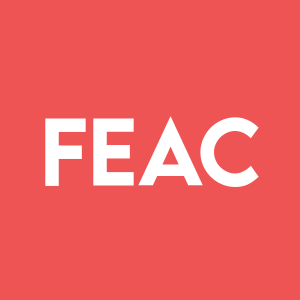Fidelity® Launches Five Actively Managed Equity ETFs, Reduces Pricing on Active High Yield Strategy
New International and Domestic Strategies Expand Fidelity ETF Lineup to More than 70 Products
Demand for Active ETF Strategies in Client Portfolios Continues to Grow
“The expansion of Fidelity’s core active equity suites speaks to our ability to combine the best of our fundamental and quantitative teams to deliver differentiated actively managed investment products,” said Greg Friedman, Head of ETF Management and Strategy at Fidelity Investments. “The new Enhanced and Fundamental strategies aim to provide additional choice for customers, including those who are looking for domestic all cap, international, emerging markets, and developed markets strategies, as evidenced by the rapidly growing ETF market.”
Fidelity Enhanced and Fundamental ETFs
The Enhanced ETF suite employs a proprietary, disciplined actively managed investment process that quantitatively evaluates factors such as valuation, growth, profitability, momentum, and other non-traditional considerations. The Fundamental ETF suite seeks to extract and combine high conviction investment ideas from multiple Fidelity fundamental active managers, employing a proprietary, disciplined investment process and a quantitative portfolio construction process. To learn more about these ETF suites, read Fidelity’s latest white papers, An enhanced approach to core equity ETFs and Uncovering alpha insights with core equity ETFs.
The portfolio management team for the two new Enhanced ETFs includes co-managers Satyajit Chandrashekar, Anna Lester, George Liu, and Shashi Naik, and for the three new Fundamental ETFs includes co-managers Tim Gannon, Michael Kim, and Ned Salter. The products are competitively priced with a gross expense ratio of
Updates to Fidelity’s High Yield ETF
Fidelity also made enhancements to its active high yield ETF, which were effective last month. The fund’s total expense ratio decreased from
“Pricing, service, and research capabilities among other factors are part of our ongoing commitment to provide superior value to investors,” said Friedman.
Active ETF Allocation on the Rise Across Advisor Portfolios
Fidelity’s Portfolio Construction team analyzes thousands of professionally managed investment portfolios annually, fueling its Portfolio Construction Insights on the latest portfolio trends among advisors. One notable trend is the rise in active ETF allocation, as the vehicle may be an attractive option for advisors looking for tax efficiencies, low costs, and intraday liquidity. This year[i],
Fidelity’s Growing Exchange-Traded Platform
Fidelity’s exchange-traded lineup consists of 76 ETFs and ETPs with
Spot crypto ETPs, such as FBTC and FETH, are not investment companies registered under the Investment Company Act of 1940 (the “1940 Act”) nor are they commodity pools under the Commodity Exchange Act of 1936 (the “CEA”). As a result, shareholders of spot crypto ETPs do not have the protections associated with ownership of shares in a registered investment company nor are shareholders afforded the protections of investing in an CEA-regulated instrument or commodity pool.
FBTC and FETH are for investors with a high risk tolerance and invest in a single cryptocurrency, which are highly volatile and could become illiquid. Investors could lose their entire investment. To learn more about Fidelity Wise Origin Bitcoin Fund, see the fund’s prospectus. To learn more about Fidelity Ethereum Fund, see the fund’s prospectus.
As part of Fidelity's commitment to financial education, the company offers a variety of resources to help investors review exchange-traded investing ideas, decide which types of exchange-traded offerings may fit their investing needs, or browse offerings with Fidelity’s screeners: fidelity.com/etfs/investing-in-etfs or institutional.fidelity.com/advisors/investment-solutions/performance/fidelity-etfs. As a leading provider of exchange-traded offerings, Fidelity’s platform offers individual investors and advisors access to more than 3,500 exchange-traded offerings, with more than
About Fidelity Investments
Fidelity’s mission is to strengthen the financial well-being of our customers and deliver better outcomes for the clients and businesses we serve. Fidelity’s strength comes from the scale of our diversified, market-leading financial services businesses that serve individuals, families, employers, wealth management firms, and institutions. With assets under administration of
Views expressed are as of the date indicated, based on the information available at that time, and may change based on market or other conditions. Unless otherwise noted, the opinions provided are those of the speaker or author and not necessarily those of Fidelity Investments or its affiliates. Fidelity does not assume any duty to update any of the information.
Free commission offer applies to online purchase of ETFs in a Fidelity retail account. The sale of ETFs is subject to an activity assessment fee (from
Keep in mind that investing involves risk. The value of your investment will fluctuate over time, and you may gain or lose money.
ETFs are subject to market fluctuation and the risks of their underlying investments. ETFs are subject to management fees and other expenses.
Digital assets are highly volatile, and their market movements are very difficult to predict. Various market forces may impact their value including, but not limited to, supply and demand, investors' faith and their willingness to purchase it using traditional currencies, investors' expectations with respect to the rate of inflation, interest rates, currency exchange rates, an evolving legislative and regulatory environment in the
The performance of the Fund will not reflect the specific return an investor would realize if the investor actually purchased bitcoin. Investors in the Fund will not have any rights that bitcoin holders have and will not have the right to receive any redemption proceeds in bitcoin.
Stock markets, especially foreign markets, are volatile and can decline significantly in response to adverse issuer, political, regulatory, market, or economic developments. Foreign markets can be more volatile than
Before investing in any exchange-traded fund, you should consider its investment objectives, risks, charges, and expenses. Contact Fidelity for a prospectus, or, if available, a summary prospectus containing this information. Read it carefully.
Fidelity, Fidelity Investments and the pyramid logo are registered service marks of FMR LLC. The third-party trademarks appearing herein are the property of their respective owners.
Fidelity Brokerage Services LLC, Member NYSE, SIPC, 900 Salem Street,
National Financial Services LLC, Member NYSE, SIPC, 245 Summer Street,
Fidelity Distributors Company LLC, 900 Salem Street,
1177372.1.0
1.9918769.100
© 2024 FMR LLC. All rights reserved.
[i] Fidelity Institutional Q3 2024 Portfolio Construction Insights.
[ii] As of October 31, 2024.
[iii] As of September 30, 2024.
View source version on businesswire.com: https://www.businesswire.com/news/home/20241121198975/en/
For Media Only:
Corporate Communications
fidelitymediarelations@fmr.com
Gabbi DiNobile
Gabbi.DiNobile@fmr.com
(617) 392-2696
Follow us on Twitter @FidelityNews
Visit About Fidelity and our online newsroom
Subscribe to emailed news from Fidelity
Source: Fidelity Investments







